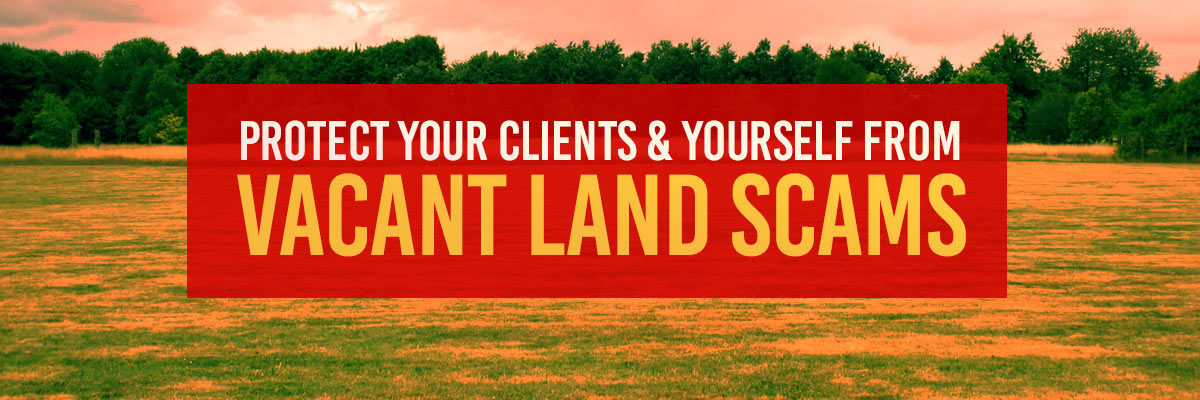Don’t Fall Victim to Vacant Land Scams
July 2, 2024
 As REALTORS®, one of your unfortunate tasks is to constantly be on guard for scams, both for you and for your clients. One scam that we are currently seeing across the commonwealth (and across the country) is a scam involving vacant lots.
As REALTORS®, one of your unfortunate tasks is to constantly be on guard for scams, both for you and for your clients. One scam that we are currently seeing across the commonwealth (and across the country) is a scam involving vacant lots.
The scam typically works like this: you’ll get a call or an email from someone who says they want to sell a piece of land. This land will almost always be vacant, and it will typically not have any mortgages or other encumbrances. The seller will usually underprice the property and will often push for a very quick, all-cash closing that avoids title companies and lenders. Importantly, they will often request that no “For Sale” sign be placed on the property.
How can scammers get away with this? Thanks to online access to public records, they can easily find properties that are vacant without any mortgages or other liens and can then find information on the landowner. Without an in-person meeting, they can convincingly play the part of the real owner through text and email. DocuSign closings done remotely prevent the settlement attorney from verifying any identification in person.
So, what can you do to protect yourself and your clients? First, your warning sensors should go off if any potential listing meets the criteria above. If you are concerned about a potential scam, you can always request an in-person or FaceTime meeting with the prospective seller. If they refuse, or if you are not satisfied that everything is legitimate, you do not have to represent the supposed seller. You could also research public land records and attempt to contact the person listed as the owner.
Landowners can also protect themselves in several ways. Creating a Google Alert or an alert on a real estate website for the address can provide a notification if the property goes on the MLS. Additionally, the owner can take out a mortgage from yourself on lots you own outright to ensure that there is a lien on the property.
If you or one of your clients has fallen victim to this scam, make sure you report the crime to both local and federal law enforcement. You should also make a report with the Internet Crime Complaint Center. If you have any additional questions, make sure you contact us on the legal hotline.
You might also like…
“Do I have to give my listing agreement to the settlement agent?”
By Sean Olk - March 11, 2025
*Please note: Any questions regarding Legal Hotline Spotlights should be submitted via the Virginia REALTORS® Legal Hotline. Our attorneys are unable to respond to questions through our comments section. Q:… Read More
FinCEN’s Beneficial Ownership Rule… Again
By Santiago Montalvo - March 6, 2025
The FinCEN Beneficial Ownership Rule has another update, again. Our last update to the rule can be found on our website. The following summary is accurate as of… Read More
“Am I allowed to represent a buyer who is not a U.S. citizen?”
By Ryan Leonard - March 6, 2025
*Please note: Any questions regarding Legal Hotline Spotlights should be submitted via the Virginia REALTORS® Legal Hotline. Our attorneys are unable to respond to questions through our comments section. Q:… Read More